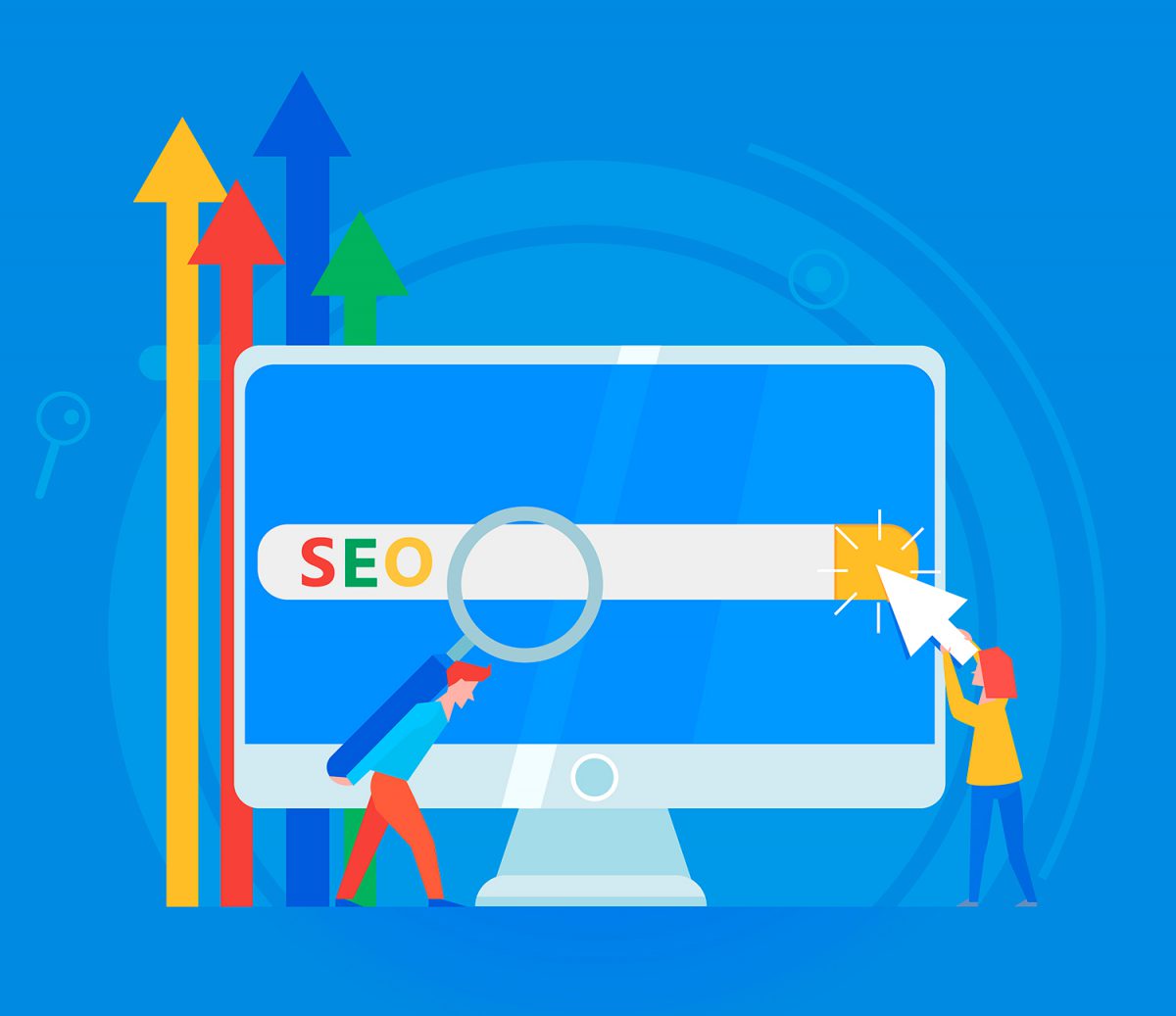How AI-Powered SEO Boosts E-Commerce Conversion Rates
E-commerce success hinges on more than just great products. Your store needs visibility where modern shoppers actually search—and that includes AI-powered platforms like ChatGPT, Google's AI Overviews, and Perplexity. Traditional optimization strategies still matter, but AI SEO Services are now essential for businesses that want to dominate both conventional search results and AI-generated answers.
The shift is real. When potential customers ask AI tools for product recommendations or shopping advice, your brand needs to be in that response. If you're not optimizing for these platforms, you're leaving money on the table while competitors capture those high-intent buyers.
The problem goes deeper than visibility. AI platforms prioritize content that demonstrates clear expertise, uses structured data, and answers specific customer questions directly. Generic product descriptions and thin content won't cut it anymore. Modern AI-driven SEO requires a fundamentally different approach to how you present information about your products and services.
Think about the customer journey. Someone asks ChatGPT "best wireless headphones under $200 for working out." If your e-commerce store sells exactly that product but your content isn't optimized for AI extraction, you lose the sale. Another brand with proper AI optimization gets featured in the answer instead.
Key conversion improvements include:
Customer behavior shifts when AI enters the equation. Shoppers who receive AI-powered recommendations already have a baseline level of trust. They're not starting from zero like with paid ads or cold traffic. This built-in credibility shortens the sales cycle and reduces the friction typically associated with first-time purchases from unfamiliar brands.
Product schema should include comprehensive attributes: brand, model number, color variations, size options, materials, and specifications. Review schema adds social proof by displaying star ratings and customer testimonials. Offer schema highlights promotions, discounts, and special pricing. The FAQ schema addresses common questions directly in search results.
Site architecture plays a crucial role too. AI platforms favor websites with clear hierarchies, logical internal linking, and fast load times. Mobile optimization isn't optional—most AI searches happen on mobile devices. Core Web Vitals directly impact whether AI systems consider your site trustworthy enough to recommend.
Content structure matters more than ever. Use descriptive headings that mirror how customers actually ask questions. Break information into scannable sections. Include bullet points for key features and specifications. Add comparison tables when relevant. These formatting choices make your content easier for both AI systems and human shoppers to digest quickly.

Niche e-commerce stores can leverage detailed product knowledge, authentic customer experiences, and targeted content to appear in AI-generated answers. When someone asks for specialized advice—like "best eco-friendly kitchen tools for small apartments"—AI platforms often prefer authoritative specialty retailers over massive marketplaces with superficial coverage.
Competitive advantages for smaller stores:
Local optimization provides another competitive advantage. Service-based keywords and location-specific queries still drive significant traffic and typically don't trigger AI summaries. Your local customer base represents a protected market where traditional SEO fundamentals continue delivering strong returns alongside your AI optimization efforts.
Traditional metrics like organic traffic and keyword rankings remain important, but AI optimization requires tracking additional signals. Monitor how often your brand appears in AI-generated citations and summaries. Track referral traffic from AI platforms separately from conventional search engines.
Brand mention monitoring becomes essential. Use tools to track when and where AI systems reference your products or expertise. Positive citations in AI responses indicate your optimization efforts are working. Analyze which content types and topics generate the most AI visibility, then create more of what performs well.
Conversion rate analysis should segment traffic by source. Compare conversion rates from traditional organic search versus AI platform referrals. You'll often find AI-referred traffic converts at higher rates because those visitors have already received a recommendation from a trusted source.
Customer behavior metrics tell the full story. Track bounce rates, time on site, pages per session, and cart abandonment rates for different traffic sources. AI-optimized content should attract more engaged visitors who spend time researching products before purchasing. These engagement signals confirm your content resonates with both AI systems and actual buyers.
Start by auditing your current content and technical setup. Identify gaps in schema markup, thin product descriptions, and missing FAQ content. Prioritize improvements based on your most profitable products and highest-traffic categories. Small, consistent changes compound into significant competitive advantages over time.
Partner with professionals who understand both traditional SEO fundamentals and emerging AI platform requirements. The strategies overlap significantly, but AI visibility demands specific technical implementations and content approaches that generic SEO services often miss. Your investment in proper AI optimization pays dividends through expanded visibility, higher-quality traffic, and improved conversion rates across your entire e-commerce operation.
The shift is real. When potential customers ask AI tools for product recommendations or shopping advice, your brand needs to be in that response. If you're not optimizing for these platforms, you're leaving money on the table while competitors capture those high-intent buyers.
Why Are E-Commerce Stores Losing Traffic Without AI Optimization?
Most online retailers focus exclusively on ranking for Google's traditional blue links. That approach is incomplete. AI search engines now serve millions of queries daily, and they pull answers from sources they trust most. Without proper optimization, your products won't appear in these AI-generated recommendations—even if you rank well on standard search results.The problem goes deeper than visibility. AI platforms prioritize content that demonstrates clear expertise, uses structured data, and answers specific customer questions directly. Generic product descriptions and thin content won't cut it anymore. Modern AI-driven SEO requires a fundamentally different approach to how you present information about your products and services.
Think about the customer journey. Someone asks ChatGPT "best wireless headphones under $200 for working out." If your e-commerce store sells exactly that product but your content isn't optimized for AI extraction, you lose the sale. Another brand with proper AI optimization gets featured in the answer instead.
How Does AI-Based SEO Actually Improve Conversion Rates?
Working with an experienced AI SEO Agency transforms how search engines and AI platforms understand your product catalog. The impact on conversions comes from multiple angles that traditional SEO alone can't achieve.Key conversion improvements include:
- Expanded multi-platform visibility – Your products appear in traditional search, AI summaries, voice assistants, and conversational platforms simultaneously
- Higher-quality traffic – Shoppers arrive pre-qualified through trusted AI recommendations rather than cold browsing
- Better-informed buyers – Customers who find detailed answers before clicking convert faster because they're further along the decision journey
- Accurate product representation – AI systems understand and communicate your unique value propositions effectively to potential buyers
Customer behavior shifts when AI enters the equation. Shoppers who receive AI-powered recommendations already have a baseline level of trust. They're not starting from zero like with paid ads or cold traffic. This built-in credibility shortens the sales cycle and reduces the friction typically associated with first-time purchases from unfamiliar brands.
What Technical Elements Matter Most for AI Visibility
Schema markup forms the backbone of effective AI SEO Services. This structured data helps AI systems parse product information, customer reviews, pricing details, and inventory status. Without it, even exceptional products remain invisible to AI-powered search tools.Product schema should include comprehensive attributes: brand, model number, color variations, size options, materials, and specifications. Review schema adds social proof by displaying star ratings and customer testimonials. Offer schema highlights promotions, discounts, and special pricing. The FAQ schema addresses common questions directly in search results.
Site architecture plays a crucial role too. AI platforms favor websites with clear hierarchies, logical internal linking, and fast load times. Mobile optimization isn't optional—most AI searches happen on mobile devices. Core Web Vitals directly impact whether AI systems consider your site trustworthy enough to recommend.
Content structure matters more than ever. Use descriptive headings that mirror how customers actually ask questions. Break information into scannable sections. Include bullet points for key features and specifications. Add comparison tables when relevant. These formatting choices make your content easier for both AI systems and human shoppers to digest quickly.

Can Small E-Commerce Stores Compete Against Major Retailers?
Absolutely. AI-powered search creates new opportunities for smaller retailers who focus on expertise and specialization. Large marketplaces often win on price and selection, but they typically offer generic product information that doesn't answer specific customer questions deeply.Niche e-commerce stores can leverage detailed product knowledge, authentic customer experiences, and targeted content to appear in AI-generated answers. When someone asks for specialized advice—like "best eco-friendly kitchen tools for small apartments"—AI platforms often prefer authoritative specialty retailers over massive marketplaces with superficial coverage.
Competitive advantages for smaller stores:
- Deep expertise signals – Original guides, detailed comparisons, and use case explanations demonstrate authority that AI platforms trust
- Authentic social proof – Real customer reviews and testimonials carry more weight than generic marketplace ratings
- Behind-the-scenes transparency – Content about sourcing, manufacturing, or quality control establishes genuine credibility
- Local optimization protection – Service-based and location-specific queries still drive traffic without triggering AI summaries
Local optimization provides another competitive advantage. Service-based keywords and location-specific queries still drive significant traffic and typically don't trigger AI summaries. Your local customer base represents a protected market where traditional SEO fundamentals continue delivering strong returns alongside your AI optimization efforts.
How Should You Measure Success With AI-Optimized Content?
Traditional metrics like organic traffic and keyword rankings remain important, but AI optimization requires tracking additional signals. Monitor how often your brand appears in AI-generated citations and summaries. Track referral traffic from AI platforms separately from conventional search engines.
Brand mention monitoring becomes essential. Use tools to track when and where AI systems reference your products or expertise. Positive citations in AI responses indicate your optimization efforts are working. Analyze which content types and topics generate the most AI visibility, then create more of what performs well.
Conversion rate analysis should segment traffic by source. Compare conversion rates from traditional organic search versus AI platform referrals. You'll often find AI-referred traffic converts at higher rates because those visitors have already received a recommendation from a trusted source.
Customer behavior metrics tell the full story. Track bounce rates, time on site, pages per session, and cart abandonment rates for different traffic sources. AI-optimized content should attract more engaged visitors who spend time researching products before purchasing. These engagement signals confirm your content resonates with both AI systems and actual buyers.
Also Read:
What is Search AnywhereOptimization
What's Your Next Move for AI-Powered E-Commerce Success?
E-commerce stores that embrace AI optimization now will dominate their markets tomorrow. The shift from traditional search to AI-assisted discovery isn't coming—it's already here. Every day you delay optimization is another day competitors capture your potential customers through AI-powered recommendations.Start by auditing your current content and technical setup. Identify gaps in schema markup, thin product descriptions, and missing FAQ content. Prioritize improvements based on your most profitable products and highest-traffic categories. Small, consistent changes compound into significant competitive advantages over time.
Partner with professionals who understand both traditional SEO fundamentals and emerging AI platform requirements. The strategies overlap significantly, but AI visibility demands specific technical implementations and content approaches that generic SEO services often miss. Your investment in proper AI optimization pays dividends through expanded visibility, higher-quality traffic, and improved conversion rates across your entire e-commerce operation.







